Edition: 2 to 12 January 2024
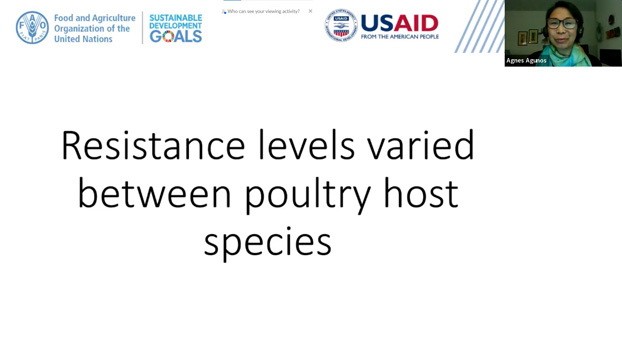 ©fao | ASIA AND THE PACIFIC Technical discussion on evidence-based antimicrobial stewardship in swine The FAO-initiated community of practice (CoP) on prudent use of antimicrobials in animals held another technical discussion last 10 January 2024. Dr Agnes Agunos, who assisted FAO ECTAD RAP in carrying out regional AMR data analyses, presented key highlights from the recent work focusing on AMR data findings in swine. The meeting participants were mostly veterinary field practitioners including members of the technical working group on swine priority diseases of the Federation of Asian Veterinary Associations (FAVA). The CoP serves as a platform for individuals who are pursuing to promote the adoption of prudent antimicrobial use in animals in the field. The CoP meets monthly for technical discussions. Should you wish to join, please register your interest here and register here for the monthly meeting. |
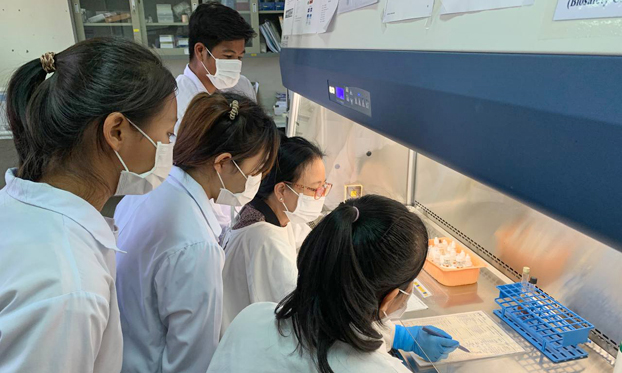 ©FAO Cambodia | CAMBODIA Training on Aeromonas hydrophila identification and Antimicrobial Susceptibility Testing The National Animal Health and Production Research Institute (NAHPRI) and Fisheries Administration (FiA), supported by FAO and USAID, co-organized a three-day training with the primary objective of strengthening relevant officials’ competency in Aeromonas hydrophila identification and antimicrobial susceptibility testing to monitor the spread of A. hydrophila in fish farms and its resistance to antimicrobials. The training also aimed to enhance the coordination mechanism between the NAHPRI, the animal health laboratory on AMR for Cambodia, and the Department of Aquaculture Development of FiA in preparation for future national AMR surveillance in aquaculture. |
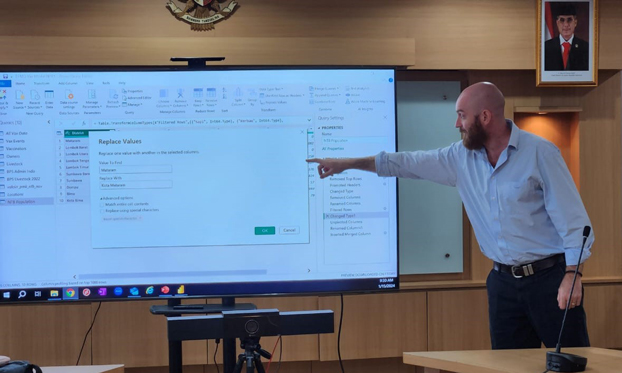 ©FAO/Andri Jatikusumah | INDONESIA Improving government capability to analyze foot-and-mouth disease vaccination data using Power BI On 12 and 15 January 2024, FAO, with support from the Australian Government, conducted training for eight key personnel of the Directorate of Animal Health (DAH) under the Indonesian Ministry of Agriculture in using Power BI, a robust tool in the Microsoft Office suite, for better analysis of foot-and-mouth disease (FMD) vaccination data. This training aims to elevate DAH capabilities in programme monitoring and decision-making at national and subnational levels and equip DAH to make informed decisions and contribute to the more effective management of FMD outbreaks by improving the granularity of vaccine reporting. This initiative signifies a significant stride in leveraging technology to enhance government capabilities for data analysis and strategic decision-making in animal health. DAH staffs are now able to utilize Power BI to explore comprehensive dashboards and interactive reports, gaining valuable insights into FMD vaccination data. These tools can be replicated and deployed in iSIKHNAS, the national animal health information system. Scott Ison, Veterinary Officer of the Australia Department of Agriculture, Fisheries and Forestry (DAFF) and FAO consultant led the training, showcasing practical applications of Power BI using actual vaccine data from the Indonesian province. |
Learn more about our work on capacity development here.
| |
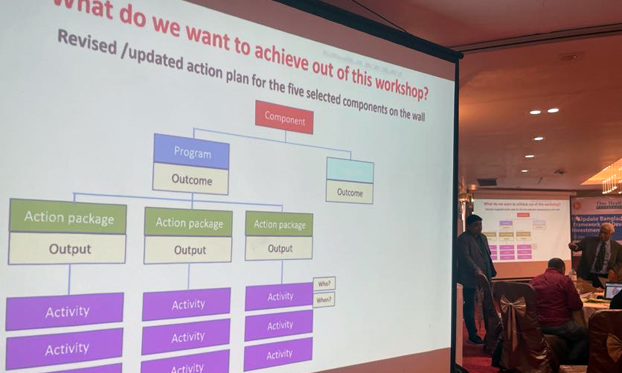 ©FAO/Humayra Nowrin | BANGLADESH Workshop on Bangladesh One Health strategic framework and investment plan FAO facilitated a two-day workshop to update Bangladesh’s One Health strategic framework and develop an investment plan from 14 to 15 January 2024, with funding from the World Bank and USAID. The workshop, led by the One Health Secretariat, focused on gap analysis, strategic issues and action plans under the pandemic prevention, preparedness and response (PPPR) pillar. Participants included representatives from various organizations, government institutions and development partners in human and animal health sectors.
|
| Learn more about our work on One Health here. | |
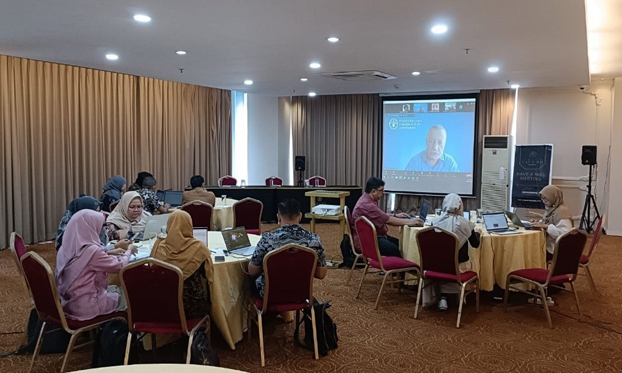 ©fao/Riana Arief | INDONESIA Reviewing and updating modules for FMD and lumpy skin disease outbreak investigation training
FAO, with funding from the Australian Government, held a workshop on 9 and 11 January 2024 to review and update modules for FMD and lumpy skin disease (LSD) outbreak investigation training. The training aimed to increase the capacity of animal health officers at district/city and province level to detect and contain animal disease outbreaks. A total of 19 participants from different government institutions attended, and the revised training module will be further refined by the Directorate of Animal Health and FAO to ensure coherence and its practical applicability for training participants. The upcoming training will be conducted in four government-selected provinces with FAO assistance. |
Learn more about our work on surveillance here.
| |
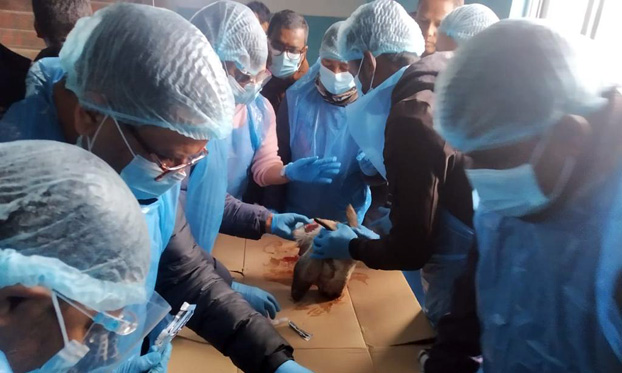 ©FAO/Surendra Karki | NEPAL Training on sample collection, dispatch and epidemiological reporting FAO, with USAID support, conducted a two-day training on sample collection, dispatch and epidemiological reporting in the Morang District of Koshi Province, eastern part of Nepal during 8 to 9 January 2024. Twenty animal health technicians working in local levels of Morang District of Koshi Province were provided hands-on training on sample collection, dispatch and epidemiological reporting along with sample collection kits. The programme was conducted in collaboration with the Department of Livestock Services, Central Veterinary Laboratory, Veterinary Laboratory, Biratnagar and Veterinary Hospital and Livestock Services Expert Center, Morang. |
 ©FAO/Surendra Karki | NEPAL Laboratory biosafety and biosecurity training conducted in Biratnagar, Nepal A three-day laboratory biosafety and biosecurity training was conducted at the Veterinary Laboratory in Biratnagar from 10 to 12 January 2024. Ten laboratory staffs working at the Veterinary Laboratory, Biratnagar were provided hands-on training on laboratory biosafety and biosecurity measures. Thanks to USAID, the programme was conducted in collaboration with the Department of Livestock Services, Central Veterinary Laboratory, and Veterinary Laboratory in Biratnagar. |
| Learn more about our work on capacity development of laboratory here. | |
